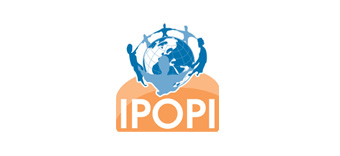March 23, 2017
From the Chairsperson’s desk
Whether Spring is in the air or Autumn around the corner, whether you live in the Northern or Southern Hemisphere, one thing is sure, you will be hearing about primary immunodeficiencies next month. IPOPI is working hard on its upcoming Regional Patients Meeting in Zambia, Africa, and with World Primary Immunodeficiencies Week around the corner, IPOPI and the national member organisations (NMOs) are preparing a range of awareness campaigns designed to put PIDs on the map at the global level. This year’s theme for the campaign is “Ensuring access to life-saving immunoglobulin therapies for people with primary immunodeficiencies”. Access to IG therapies remains suboptimal for people living with a PID in many countries around the world. As stated in the PID Principles of Care publication (Chapel et al, 2014) “all countries and immunodeficiency centers should have access to a wide spectrum of Ig products in order to provide optimal treatment for all immunodeficient patients”.
It is with this vision in mind that IPOPI will organise its 2nd World PI Week Event at the European Parliament on April 25th which will bring together stakeholders from around the world to call for more equal access to care for PID patients. Two months ago the European Parliament also was the venue for another key IPOPI event, our 8th PID Forum, which was entitled “Don’t Brexit on Rare Diseases Patients – the case of Primary Immunodeficiencie”. The Event was attended by a large number of Members of the European Parliament who endorsed a set of recommendations designed to protect and defend the interests of the PID community in the context of the Brexit negotiation process highlighting the key role the EU plays in the management of rare diseases such as PIDs.
Still in Europe, PIDs featured high on the agenda of the Plasma Protein Therapeutics Agency (PPTA) in Prague with a dedicated session including IPOPI Medical Advisory Panel Prof Martin Van Hagen and a great presentation on national priorities from IPOPI Vice President Martine Pergent.
If you are a medical expert and PID clinical care is your area of expertise, I would like to encourage you to share your clinical management experiences, to support and educate the young physicians, especially those from the less well resourced countries at the 3rd International Primary Immunodeficiencies Congress – IPIC2017 – which will be held in Dubai on 8-10 November 2017. Abstracts for poster presentation can now be submitted online on the IPIC2017 Abstracts page. The deadline for submission is 1st of June 2017. With more partner organisations and sponsors supporting the congress than ever before, IPIC2017 is set to be a new milestone in the field of PID clinical care and we look forward to seeing many of you in vibrant Dubai in November!
In just a couple of weeks IPOPI will present a poster during the African Society for Immune Deficiencies (ASID) Congress in Livingstone, Zambia, looking at the management of PIDs in comparison to Haemophilia in Africa, to increase awareness of PIDs in the region and raise the bar in terms of access to diagnosis and care for our patients in that region. IPOPI will be organising its African Regional Patients Meeting back to back with the ASID congress further building on the opportunity this important conference represents and mobilizing patient groups and key opinion leaders to call for improved conditions and management of PIDs.
I was very pleased that my colleague Bruce Lim, IPOPI’s Board Member responsible for South East Asia was in attendance at the recent IPFA 2nd Asia Workshop on Plasma Quality and Supply to represent the PID community. Asia is a region where IPOPI is driving change for the PID community and our next meeting is scheduled to take place in just a few weeks from now in Indonesia with a programme designed to bring together patients and doctors from the country to raise awareness and improve PID clinical care in the country. Going over to Latin America now, what a pleasure it is to welcome yet another country in the region in the IPOPI family. Paraguay has recently joined us as associate NMO just a few weeks after we welcomed the Philippines. I would like to extend them both a warm welcome! These two countries are now among IPOPI’s growing network of NMOs who dedicate their work to improving conditions for PID patients around the world. Just in this edition of e-News you can read about the latest and diverse activities of our members!
Happy reading to all and hope to see you soon at one of our events,
Jose Drabwell

